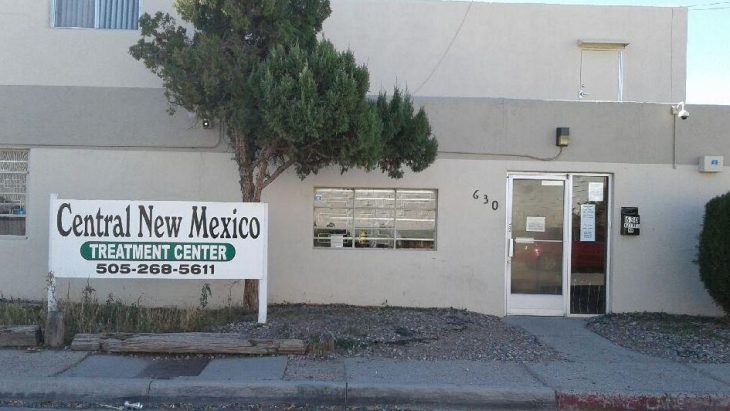New Season Central New Mexico Treatment Center

About New Season Central New Mexico Treatment Center
Located in beautiful Albuquerque, New Mexico, New Season Treatment Center offers outpatient substance abuse programs to help people recover from heroin and prescription painkillers. New Season’s treatment team is led by addiction specialists who aim to give the highest quality of care to their patients.
Treatment here consists of medically supervised detox, group and individual counseling, and medication-assisted therapy. New Season provides the opportunity to access sobriety without leaving work, family obligations, or social obligations.
Cost-Effective Recovery Solution
New Season prides itself on being a cost-effective treatment solution for the working individual. They offer three different options for medication assisted therapy, including Methadone, Suboxone, and buprenorphine.
Using MAT to address the physical cravings and minimize withdrawal symptoms, counseling then plays an essential role in treating psychological components. New Season’s goal is to help you become stable, reduce cravings, and find long-term success.
Expert Care During Medically-Supervised Withdrawal
New Season defines itself as experts when dealing with the complexities of detoxing from substances. They offer safe and supportive medical care during the withdrawal process. They monitor your progress to ensure you stay comfortable and functional. Even after the withdrawal process, you’ll receive regular medical exams to stay on top of physical and mental health symptoms.
Counseling sessions will help you develop coping skills within your existing environment and respond effectively to relapse triggers.
Reviews are mixed, with some former clients thanking the staff and saying this clinic is incredible. Others describe some unprofessional staff members.
| Levels of Care | Detox Service Setting | Programs | Payment Options | |||
|---|---|---|---|---|---|---|
|
In outpatient therapy, you’ll attend therapy sessions several times each week while living at home. This is ideal if you have a strong support system and a lower risk of relapse. Outpatient treatment offers flexibility to maintain work, school or family obligations. |
||||||
|
Outpatient detox gives you access to medically supervised withdrawal services while still allowing you to live at home. You’ll attend a clinic for treatment and monitoring. This flexible option is suitable for those with mild to moderate withdrawal symptoms who have strong support systems. |
||||||
|
Adult programs address the substance use and life challenges specific to adults. Therapists can deliver sessions in individual, group and family settings. Services often include job support and life skills training in a structured environment. |
Alcohol detox programs offer medical support to help individuals withdraw safely from alcohol. Your care team may use medications to ease your symptoms and provide medical monitoring to address complications. |
Drug detox programs support individuals who are withdrawing from addictive substances like cocaine and heroin. Medical support helps you manage symptoms in a controlled and safe environment so you can achieve initial sobriety. |
Men's programs address substance use while also considering the social pressures, family roles and mental health concerns that are specific to men. You’ll learn healthy coping mechanisms as you build emotional resilience and develop communication skills. |
Opioid detox uses medications to ease severe withdrawal symptoms. It also includes medical supervision to help you manage potential complications. These services allow you to stabilize and begin a recovery plan. |
Women's programs offer a safe and supportive space to focus on gender specific issues such as trauma, family roles and mental health conditions. Therapists tailor the sessions to address women's needs and foster empowerment in a healing and nurturing environment. |
Young adult programs are designed for individuals who are transitioning into adulthood. Topics of discussion typically include identity, independence and peer relationships. Providers may also offer life skills training and career support. |
|
Medicaid
|
Private Insurance
|
Self Pay
|
Levels of Care
In outpatient therapy, you’ll attend therapy sessions several times each week while living at home. This is ideal if you have a strong support system and a lower risk of relapse. Outpatient treatment offers flexibility to maintain work, school or family obligations.
Detox Service Setting
Outpatient detox gives you access to medically supervised withdrawal services while still allowing you to live at home. You’ll attend a clinic for treatment and monitoring. This flexible option is suitable for those with mild to moderate withdrawal symptoms who have strong support systems.
Programs
Adult programs address the substance use and life challenges specific to adults. Therapists can deliver sessions in individual, group and family settings. Services often include job support and life skills training in a structured environment.
Alcohol detox programs offer medical support to help individuals withdraw safely from alcohol. Your care team may use medications to ease your symptoms and provide medical monitoring to address complications.
Drug detox programs support individuals who are withdrawing from addictive substances like cocaine and heroin. Medical support helps you manage symptoms in a controlled and safe environment so you can achieve initial sobriety.
Men's programs address substance use while also considering the social pressures, family roles and mental health concerns that are specific to men. You’ll learn healthy coping mechanisms as you build emotional resilience and develop communication skills.
Opioid detox uses medications to ease severe withdrawal symptoms. It also includes medical supervision to help you manage potential complications. These services allow you to stabilize and begin a recovery plan.
Women's programs offer a safe and supportive space to focus on gender specific issues such as trauma, family roles and mental health conditions. Therapists tailor the sessions to address women's needs and foster empowerment in a healing and nurturing environment.
Young adult programs are designed for individuals who are transitioning into adulthood. Topics of discussion typically include identity, independence and peer relationships. Providers may also offer life skills training and career support.
Accreditations
Contact

Kelly Fitzgerald Junco is an author and marketing consultant who is best known for her award-winning blog, The Adventures of a Sober Señorita. She’s currently pursuing her Masters of Clinical Mental Health Counseling and is 11 years sober Her work has appeared on sites like the Huffington Post, Ravishly, and SheKnows.

Courtney Myers writes and edits professionally from her home in North Carolina. She holds an MS in Technical Communication from N.C. State University and has worked in proposal management, marketing, and online content creation. She specializes in creating resources related to behavioral health and addiction recovery.




